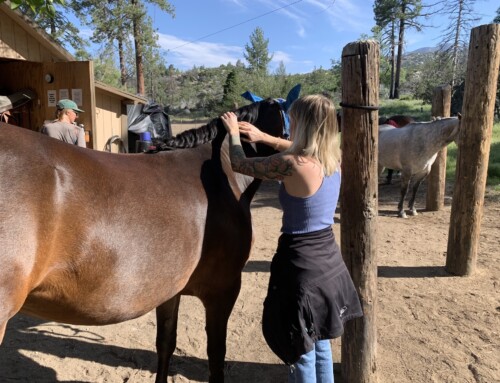Written by: Michael Owen, Army Veteran
Emotional mastery is simply being able to not let your emotions govern the way you think. Once you begin acting based on the way you feel, common sense and logic go out the window. You are no longer thinking rationally. Substances also inhibit your ability to think rationally, which is among some of the reasons why I quit drinking.
In stoic philosophy you’ll read about this kind of stuff a lot. When you think about it, acting based off your emotions can be dangerous in many situations. Someone is on a diet because they are morbidly obese (dangerously overweight) but when they go into a convenience store for some hygiene supplies, they spot some candy in the aisle. They are FEELING hungry and they FEEL like eating something sweet, so they act accordingly. They cheat the diet and themselves and now they are subject to all the diseases and health issues associated with morbid obesity. You FEEL a certain discomfort, so you jeopardize some long-term goal. You FEEL bored so you decide not to study. You FEEL tired so you skip out on the training session that day. You FEEL lust so you cheat on your significant other. You FEEL like you’re shit out of luck because you have fallen so far so you decide not to try to better your life, because you figure there is no point. Your feelings can be DANGEROUS. Your feelings can talk you out of greatness. You must master your feelings. I am not saying to bottle your emotions and deny them. I’m telling you to acknowledge them, understand them, and let them pass. This Is where meditation comes in.
I don’t like to say “meditation” because it throws people off. They disregard it as some pointless hippy stuff. That is as far from the truth as you can get. There is tremendous power in introspection and it can be quite painful. For right now let’s just talk about meditation as it pertains to emotional mastery. First I would like to invite you to read a book named “Letting go. The pathway to surrender” – By David R. Hawkins, M.D, Ph.D. He talks about emotions and thoughts and how to understand them, observe them, then surrender them. Hence the name.
When you sit down to meditate, you will have constant thoughts in your head trying to pop out. Not strange, very natural, the key is not to shove them down, but to acknowledge their existence, feel the emotion behind said thought (Thoughts are by products of emotions), and let it go. DO NOT further entertain the thought, do not begin to think about all the other things that correlate with that emotion because then you will keep thinking about it and will not be able to let it go, and now you are controlled by said emotion.
Here is an example, you’re getting ready to go out with a few friends, and you remembered that Ricky invited that one person that really gets on your nerves. Now you’re a little irritated. NOW instead of letting the thought go after experiencing the emotion, you decide to think about other thoughts that correlate with the anger you are feeling. You start to remember all the things you hate about him, the way he walks, the way he talks, the way he thinks he’s better than everyone. As you continue to do this you will continue to find reasons to be angry. That one thought has elevated into a mood, then soon a temperament. Now you’re angry for the duration of the trip and you had a shitty time.
Meditation helps with emotional mastery because in order to get into the meditative state, you must pass those thoughts, so you don’t distract your mind. You will train yourself to experience emotions but not let them control you. Once you have the thought and feel the emotion behind it, and you don’t chase the emotion with other thoughts, said emotion should dissipate. It’s a strange feeling, almost like the energy behind the thought disappears. It’s also great because it allows you to have that buffer period that most people don’t have. You need to separate your emotion from your decision. Otherwise you will tend to go with the decision that will satisfy said emotion, be it good or bad.
This will bleed into other parts of your life. Now when you’re trying to accomplish something and your FEELINGS are trying to distract you, you can quickly snap out of it and you will be back in that state of rational thinking, where you can see the goal ahead of you. Now you will not let your feelings take away from your goal. You will no longer talk yourself out of greatness.
Now remember, this is all a skill. It will take time to develop, and you will struggle with it. But just like with any other skill, with CONSISTENT (I cannot stress consistency enough) work and time spent on that skill, you will get closer to mastering it, and soon it will be second nature. Soon might be a bad word, but understand that you will reap the fruits of your labor if you consistently work at it.
And remember this, I’m not telling you to ignore your emotions. I am telling you to put that buffer period in between the emotion and the reaction in order to make a RATIONAL decision.
Don’t be unfeeling, be unmoving.








Leave A Comment